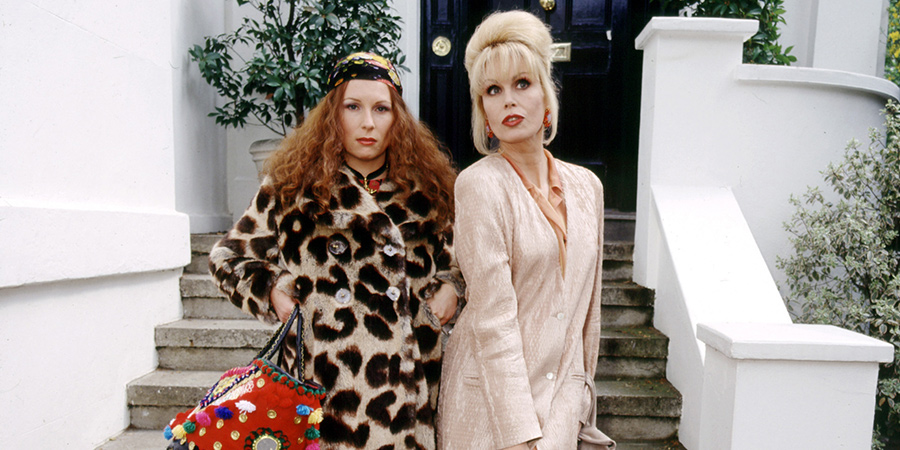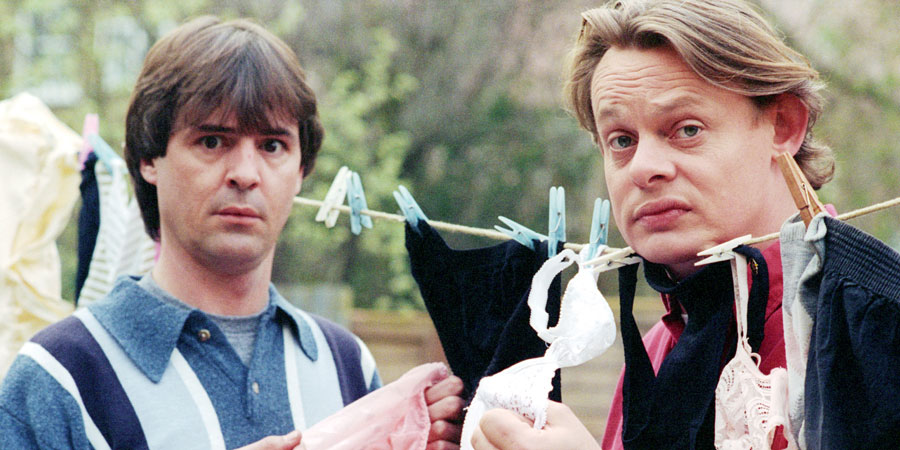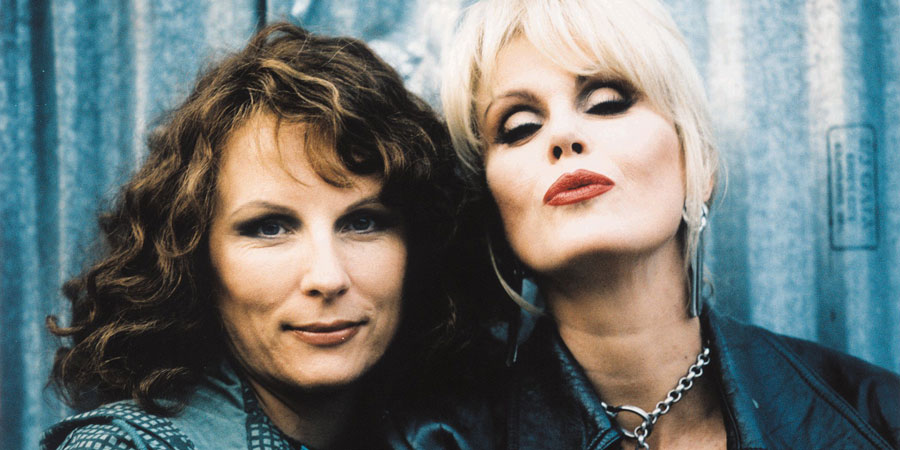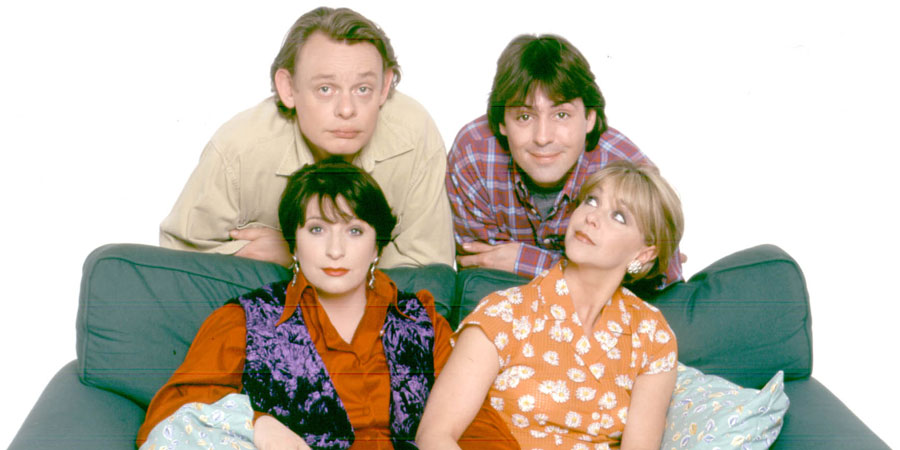The 90s are back: The TV comedies that defined the decade

Perhaps it's the fact the European Championships are on the telly, evoking memories of Euro 96 and football coming home; maybe it's due to the fashion industry being ablaze with 90s clothes, make-up and hairstyles; or it might be that excitement is building about the Oasis documentary, celebrating the 25th anniversary of the iconic Knebworth concerts. But, whatever the case, it seems everyone is suddenly nostalgic for the 1990s again.
In terms of British comedy, the 1990s should be considered an odd decade. It acted as a bridge between two eras, having some roots in the past but ultimately pointing to new ways of looking at comedy. The 90s started with BAFTA celebrating Only Fools And Horses, Blackadder Goes Forth, and The New Statesman, but it ended with Alan Partridge, Ali G and Caroline Aherne being household names.
Which comedies - if any - defined the decade? It's not an easy question to answer, particularly because it's easy to confuse defining an era with what was the best or most influential comedy. All of those elements are up for debate, of course.

Roots of modern comedy in the 1990s
One Foot In The Grave and Keeping Up Appearances were two of the most popular comedies of the decade. But, tonally, they could have been made in the 1970s or 1980s. Meanwhile, Drop The Dead Donkey, The Day Today and Brass Eye have premises that feel more in tune with modern sentiments.
For very different reasons, we might cite two comedies that felt most at place in the 1990s - Absolutely Fabulous and Men Behaving Badly. Both were huge successes and both caught a sense of 90s Britishness, even if the characters and situations were exaggerated.
Before delving into the two comedies and their legacies, it's worth noting that the UK was hit by a lot of comedy imports from America in the 1990s. Friends, Frasier and Seinfeld all had an impact (Friends still regularly tops UK Netflix viewing figures). On the big screen, Jim Carrey dominated the comedy of the decade. His big break came in Ace Ventura: Pet Detective, which admittedly hasn't left much of a legacy beyond the popular Ace Ventura slot game. But despite the American invasion, Britain's comedy stuck to its own path - and remains all the better for it.

Ab Fab portrayed a sense of social freedom
As for Ab Fab, it felt like a breath of fresh air when it was released. It wasn't just that the sitcom had female leads - the entire ensemble was driven by women. The show evolved from a French & Saunders sketch entitled Modern Mother And Daughter, but Saunders later fleshed out the premise.
The drink, debauchery and drugs were a world away from what we were used to seeing in a comedy, but there was also a sense of the new freedoms - economic and social - of the 1990s.
In a way, we can think of Ab Fab as not just a 90s comedy, but as a post-Thatcher comedy. That's a testament to Saunders, given her background and connections when forging her reputation with The Comic Strip Presents. It's not always easy for comedy writers to change tone so dramatically, but Saunders managed it.
We should also point to Ab Fab's portrayal of London. Again, it's exaggerated, but it hit parts of the zeitgeist. The capital city was emerging as the flagship of the new Cool Britannia era, and Ab Fab sent it up perfectly.

While Ab Fab was essentially Women Behaving Badly, it is significantly different to Simon Nye's Men Behaving Badly. The latter has certainly dated, but it is certainly a little bit more rounded than the celebration of lad culture that it looks on paper. Martin Clunes and Neil Morrisey (the latter of whom replaced Harry Enfield in Series 2, when the show hit its stride) were buffoons, and you could tear the characters apart for their chauvinism and boorishness when viewed through a modern lens. But there was also a gentleness to the show. Its protagonists were pathetic, and that put a little bit of a salve on Gary and Tony's treatment of women.
Indeed, perhaps the main problem people have with Men Behaving Badly when looking back is the prudery of the female characters. The brilliant Caroline Quentin had to play the straight woman a bit too often, only rarely getting to show off her comedic chops.
Like Ab Fab, Men Behaving Badly caught a sense of zeitgeist of the 1990s that felt like it was portraying a moment in time.
Both of these shows were optimistic. It's not that the 1980s were miserable - far from it - but the TV comedies nearly all gave a nod to the economics of the era, and, to an extent, the hangover of the British class system. The 90s changed that. Working-class culture was fashionable, but the ideas of class also began to evaporate. Ab Fab and Men Behaving Badly showed the fluidity of that change, albeit in different ways.
The definitive 90s TV comedies? For capturing that tone of optimism and freedom and not yet developing the cynicism that would define the 2000s and beyond in a post-9/11 world, many might say yes.
